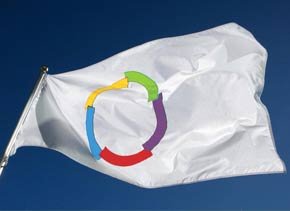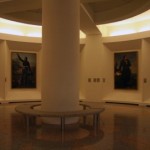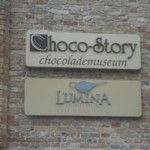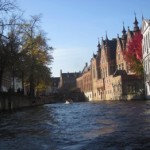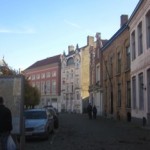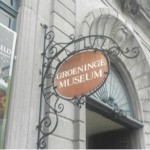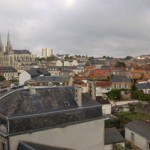November 2, 2011
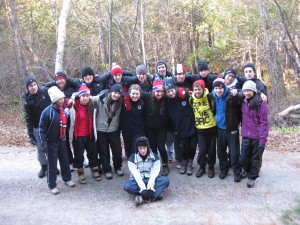 Camp Nominingue was the perfect place for this four-day journey filled with hiking, canoeing and an abundance of memories. The beginning of the trip saw a night filled with star gazing and chatting around the campfire. It was agreed that the next four days would be a lovely break from the city and its demanding lifestyle. After a cold night’s sleep, rising to discover the ground covered completely in frost, the layers of clothing began to pile on. Three canoes filled with eight students singing against each other with the winner remaining unclear. Making it to the beach, we had a short hike to the top of a hill, which had a picture quality view of the lake. We later discovered that the group’s weakness manifested itself in the form of Swedish Berries and therefore an impromptu game of “ninja” was always around the corner. Returning back to ‘base’ we proceeded to sit around the campfire, pass the football and really get to know those we were sharing this experience with.
Camp Nominingue was the perfect place for this four-day journey filled with hiking, canoeing and an abundance of memories. The beginning of the trip saw a night filled with star gazing and chatting around the campfire. It was agreed that the next four days would be a lovely break from the city and its demanding lifestyle. After a cold night’s sleep, rising to discover the ground covered completely in frost, the layers of clothing began to pile on. Three canoes filled with eight students singing against each other with the winner remaining unclear. Making it to the beach, we had a short hike to the top of a hill, which had a picture quality view of the lake. We later discovered that the group’s weakness manifested itself in the form of Swedish Berries and therefore an impromptu game of “ninja” was always around the corner. Returning back to ‘base’ we proceeded to sit around the campfire, pass the football and really get to know those we were sharing this experience with.
We spent the night playing an enthusiastic game of “spot,” that was nothing less than ridiculously challenging and managed to engage everyone in the student versus teacher style. From there we celebrated Victor’s 15th birthday in a classic campfire style with brownies, marshmallows and hot chocolate around the fire. By now, we had all realized that without our knowledge of “what the present time was,” how irrelevant knowing it at all really was.
Sunday morning, not too long until we would all have to venture back to Montreal, it dawned on all of us how sad leaving this experience would really be. This aside, the next activity on our agenda was hiking, where we hiked to yet another picture-perfect place. This place was different to most with its vegetation being one of a kind.
On returning, we played a whole group football game before heading out on an orienteering course. The orienteering course was difficult, but was enjoyable to say the least. By having infinite time on a skill, we developed abilities that will hopefully develop further and assist us in the future. By this time the group had managed to form a tight bond.
It was sad to realize that the trip was coming to an end, even though by this point a shower seemed pretty attractive. We continued on with a rather unappealing odour; mixed with a brilliant attitude to finish off our last night with what seemed a late bush walk, star gaze and our intense game of spotlight. As Monday came we all packed our bags filled with dirty clothes, packed up our tents, said goodbye to our beloved fire pit and cleaned up our site. We finished with a few team activities that tested our ability to communicate verbally and physically, with a race to the ultimate finish line.
I’d like to thank Mr. Weiland, Mr. Hirtle, Daniel and Ms. Wall for making the trip possible. Finally I’d also like to thank all that were on the trip for making it an extremely enjoyable and a memorable Canadian experience.– Anna Brouwers, New England School for Girls in Armidale, Australia (Anna is an exchange student spending twelve weeks with LCC )

